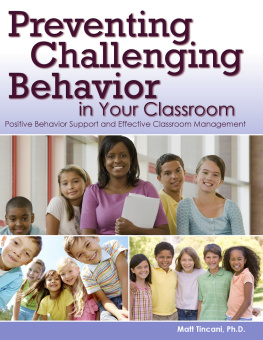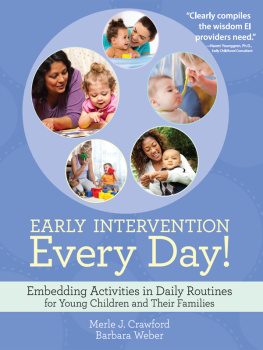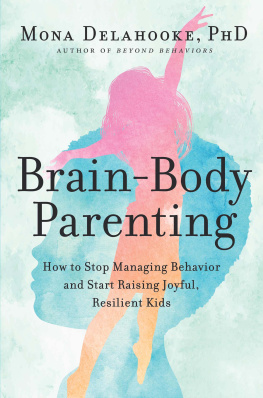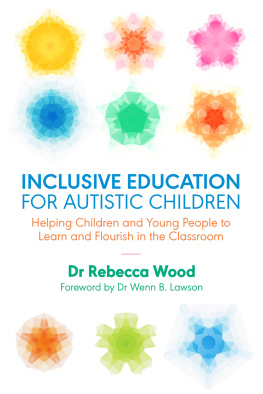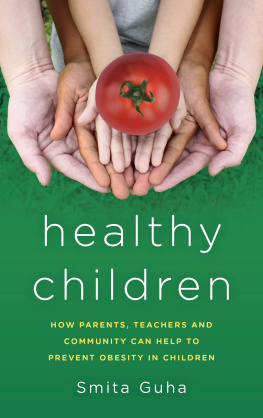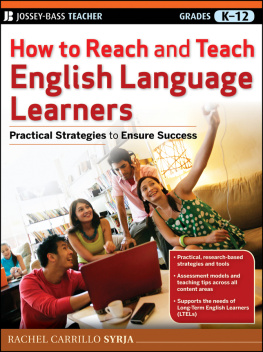Beyond
Behavior
Management
SECOND EDITION
The Six Life Skills Children Need
Jenna Bilmes

| Redleaf Press www.redleafpress.org 800-423-8309 |
Published by Redleaf Press
10 Yorkton Court
St. Paul, MN 55117
www.redleafpress.org
2004, 2012 by Jenna Bilmes
All rights reserved. Unless otherwise noted on a specific page, no portion of this publication may be reproduced or transmitted in any form or by any means, electronic or mechanical, including photocopying, recording, or capturing on any information storage and retrieval system, without permission in writing from the publisher, except by a reviewer, who may quote brief passages in a critical article or review to be printed in a magazine or newspaper, or electronically transmitted on radio, television, or the Internet.
First edition published 2004. Second edition 2012.
Cover design by Jim Handrigan
Cover photograph iStockphoto.com/Alex Slobodkin
Interior design by 4 Seasons Book Design/Michelle Cook
Typeset in Formata and Adobe Garamond Pro
191817161514131212345678
Library of Congress Cataloging-in-Publication Data
Bilmes, Jenna, 1948
Beyond behavior management : the six life skills children need / Jenna Bilmes.
2nd ed.
p. cm.
Summary: Developed and tested in the classroom, Beyond Behavior Management helps you guide young childrens behavior by helping them build essential life skills: collaboration, adaptability, attachment, self-regulation, contribution, and belonging Provided by publisher.
Includes bibliographical references and index.
ISBN 978-1-60554-179-2
1. Classroom management. 2. Social skills in childrenStudy and teaching. I. Title.
LB3013.B54 2012
371.102'4dc23
2011039610
Printed on acid-free paper
For the children and those entrusted with their care.
And for my parents who, as we know, were my first and most important teachers.
Contents
Until Lizbeth entered my life, I had believed I was a wonderful teacher. But it turned out that years of experience and my college degree were no match for this five-year-old. She threw paint on the windows and turned a favorite tape into a twisted mass of ribbon. She was fluent in the vilest profanity. During a tantrum, she head-butted me hard enough to crack my rib. Lizbeth was first to arrive in the morning, last to leave in the afternoon, and the only one who never came down with chicken pox.
That year with Lizbeth was painful and challenging. But more importantly, that year I started on a journey that was to change the way I taught forever.
Lizbeth crossed my path after I had a few years of experience with children. By then I had learned classroom management from teachers with far more experience than I had. I gave my kids clear limits and time-outs. They received praise when they behaved and stern words combined with the look when they did not. I saw, I tried, I conquered. It was the year of stickers, a student-of-the-week phase, and gold tokens for good nappers. With each management technique, I gained more and more control over the children in my care.
To me, Lizbeth appeared to be a stubborn, spoiled, headstrong girl who needed to learn that she wasnt the boss of the universe. And I was determined to be the one to teach her that lesson. I reached deep into my bag of tricks and techniques in an effort to control and manage her. When she crashed a bike, I took away her outside time. She demolished the class gingerbread house, so I forced her to sit in the time-out chair until she apologized to the other children. When she bombarded an innocent boy with her infamous profanity, I took away her right to go on the zoo trip. As she escalated her behavior, I escalated the consequences. But Lizbeth only became more disruptive and defiant.
When my bag of tricks was exhausted, I looked for others to blame. How could I be expected to fix a child whose mother wasnt willing to work with us? Look at the neighborhood she was free to roam at all hours of the day and night! Yet every time I sent her to the office, the director would give her a hug and a chat and would promptly return her to my room. I didnt send her down there for a hug! I wanted that girl to have the fear of God put into her. I wanted blood!
This child brought out the worst in me, time and time again. I became consumed with mean-spirited battles of will with a five-year-old that left me frustrated and discouraged. I had allowed Lizbeths behavior to turn me into somebody I didnt like very much. It was time to look within myself, not only to examine my relationship with Lizbeth but also to rethink my entire approach to discipline and guidance. What were my overriding goals for children anyhow? And did my current strategies help them reach those goals?
I had a pretty good idea of the beliefs and skills I wanted the children in my care to have. They should know how to have a friend and be a friend, and they should be able to solve conflicts with words rather than force. I wanted them to know right from wrong and to be good because that is what people do, rather than behave so they could get a reward or avoid a punishment.
But if that is what I believed, then why was I doing what I was doing? How were children to learn compassion when I told them to ignore their friend in the time-out chair who wept for his mommy? How could they practice conflict resolution when I was so quick to jump in as both judge and jury to solve all their problems? How were children learning to be good for goodness sake when I was bribing them with rewards? Why did I make it my job to manage childrens behavior? Shouldnt I focus instead on ways to give them the guidance and practice they needed to manage their own behavior?
One day in a workshop, a group of teachers listed all the strategies we used to teach children language and literacy. Lo and behold, time-out wasnt on the list. Neither was the loss of recess, exclusion from the group, or guilt. Instead, we teamed reading-challenged children with other children in the class who could read. We gave them extra one-on-one practice, and we made sure they never felt inadequate. We gave them messages that there was nothing wrong with them and that we would all work together as a team to support them. Punishment was out of the question! If we punished them, wouldnt the child avoid reading or feel stupid and different from the rest of the children?
If we didnt make children feel bad to help them learn how to read, why then did we try to make children feel bad to help them act good?
The clouds cleared and the sun rose and I had my epiphany. I heard the BIG MESSAGE: the way most of us instinctively react to misbehavior is the least effective way to help children develop good behavior.
I probably should have felt good about this revelation, but I didnt. I knew I had to change my old practices, but I had no idea what to put in their place. I had to figure out all over again what my role was supposed to be in a childs life.
When I first taught two-year-olds, one of the more experienced teachers told me to try to distract children who cried when their parents left them. Bring them to the window to watch the birds, she said. If that doesnt work, just ignore them. Theyll stop after a few minutes.
And then I had the privilege of working with Sharon. British, with long, wild hair and a tattered Laura Ashley dress, she was a combination of the Pied Piper and Mary Poppins to the fourteen kids in her care. I watched as she knelt down by a distressed child. Oh you poor dear, she cooed. You miss your mommy, dont you? I expected the child to scream even louder, but instead the child began to calm down. I sometimes miss my mommy too, Sharon continued. Me too, the child said as the sobs stopped. I like to look out the window when I feel sad, Sharon said. Come, lets look together.


